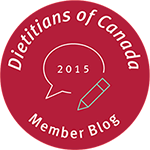Book a BC Dairy teacher nutrition workshop at your school and be ready to teach nutrition the next day in your classroom.
Key recommendations from nutrition education research state that the best nutrition education1:
- Focuses on specific behaviours rather than just general knowledge.
- Considers the multiple factors that influence food choices, such as food availability, food accessibility and the social environment.
- Engages parents through sharing of the program’s key messages and tips to support their child in adopting healthier habits. This is particularly important for elementary children.
- Allows students to self-assess so they can plan for improvements.
- Is taught intensively (in multiple sessions) and sequentially over a sufficient period of time.
- Is tailored to the students’ developmental stage and includes grade appropriate learning activities.
Why teach one of BC Dairy Association’s nutrition education programs?
They meet all of these recommendations:
- They consist of six to ten lessons designed to be taught sequentially over three to four weeks with extension activities for follow up and review throughout the school year.
- They guide students through a self-assessment process to identify areas for improvement and develop grade-appropriate specific plans for making changes.
- They help students problem-solve when implementing plans: students identify factors that may prevent them from changing their behaviour and brainstorm strategies for overcoming these challenges.
- They include a parent communication piece (letter or guide) that informs about the program’s objectives and provides strategies for supporting change at home. They also encourage students to share with their family key concepts and skills they learn throughout the program.
- They lead to behaviour change, with students reporting eating more balanced meals, choosing healthier snacks and making plans to meet Canada’s Food Guide recommendations for their age.
As for teaching strategies and approaches, a recently published systematic review2 reported that enhanced curriculum approaches (such as specialty nutrition education programs), cross-curricular approaches, parental involvement and experiential learning were the top four strategies shown to promote healthy eating. Experiential learning was associated with the largest effect on positive changes such as increasing fruit and vegetable consumption or preference2. BC Dairy programs link to many BC curriculum areas and encourage experiential learning.
Would you like to use one of BC Dairy’s nutrition education programs*? Book a workshop at your school and get ready to teach the next day in your classroom.
*Programs are only available to teachers who attend a workshop. Workshops are free. Programs can be purchased at a one-time cost of $15 to $20. Student materials and program updates are then re-supplied annually free of charge.
References
- Roseman MG, Riddell MC, Haynes JN. A content analysis of kindergarten-12th grade school-based nutrition interventions: taking advantage of past learning. J Nutr Educ Behav. 2011 Jan-Feb;43(1):2-18. doi: 10.1016/j.jneb.2010.07.009.
- Dudley DA, Cotton WG, Peralta LR. Teaching approaches and strategies that promote healthy eating in primary school children: a systematic review and meta-analysis. Int J Behav Nutr Phys Act. 2015 Feb 25;12:28. doi:10.1186/s12966-015-0182-8.
Written by Rola Zahr, MPH, RD

